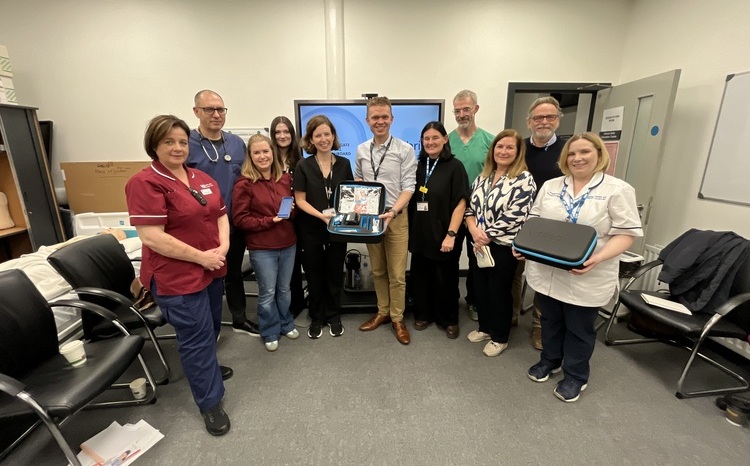London delays due to ‘lots of factors’ says BT chief
- 8 June 2007
BT Health’s managing director has told MPs that ‘lots of factors’ are the root cause of delays in implementations at London’s acute hospitals, but that the National Programme for IT’s (NPfIT) work in the capital should be completed by 2009 with full integration of systems a year later.
Patrick O’Connell was giving evidence to the Commons Health Select Committee’s third session on the electronic patient record. Quizzed by the chairman, Kevin Barron for exact reasons why acute patient administration system (PAS) deployments under the London Programme for IT (the new term for the work) were running late, O’Connell said it was a result of ‘lots of factors’.
Asked to expand on that, he said: “It is not just one thing [delaying implementations] but a multiple set of factors, such as re-prioritisations, change of schedules and an attempt for synergy that did not work.”
He added: “This is a large programme. We start with timescales, they get reshuffled, things are added and some are implemented on time and some things go out of schedule. More importantly though, we are making progress and rollout should start in the summer.”
O’Connell was asked to explain why BT had made promises when bidding to be a supplier, which it appeared it couldn’t meet. It was suggested that this was so that BT would win the contract, but O’Connell flatly denied the accusation, saying delays were due to a lack of understanding.
“It takes three communities to make this programme a success: the user community, the buyer community and the supplier community. Working together, the programme would work on schedule, but all three groups are not uniformly bonded together, so there is often not a complete understanding upfront. There needs to be a coming together of groups and this lack of understanding makes all the difference between implementing on day one (on time) and day two (late).”
To help London achieve the objectives of NPfIT, O’Connell said that BT had revised its strategy and chosen just three suppliers whom it considered ‘best of breed’.
In its written evidence to the enquiry, BT said: “The switch to Cerner together with a strategy of providing an integrated solution employing Cerner (acute), InPractice [INPS] (primary care) and RiO (community and mental health) removes risk from the delivery strategy by moving away from a ‘single vendor’ strategy, and uses products that the NHS has deployed and trusts in the field. The execution of this revised strategy is proving successful.
“In particular, great progress has been made in mental health and community health care settings, with half of all London’s mental health trusts having new IT systems installed. Two trusts in London (Newham and Homerton) deployed upgrades to their Cerner systems last year. There are plans to go live at Barnet and Chase Farm in the summer and two further deployments are planned later this year. Comprehensive plans have been agreed with NHS CfH [Connecting for Health] to continue this programme of work across all care settings in 2008 and beyond.”
BT invited the committee members to visit Homerton hospital to see the Millennium system for themselves. Homerton chose Millennium before the national programme, but have received upgrades from BT since.
O’Connell said that the experiences gained from previous implementations have helped BT to ensure that what it puts into London hospitals will be the best system for the trust’s local requirements.
“We engage trusts far in advance of delivering the systems to try to ensure the principles are understood well in advance. For BT, it’s not about one size fits all, but engaging early and offering trusts the ability to configure codes as they want to make changes to reflect the needs of the trust and the community – it is not the same as the R0 deployments in the South, we have called ours LR0 reflecting the experiences from Homerton and Newham and meeting trusts’ needs.
“With the ability to customise at the baseline, we can modify and customise as we go along. Patient records are viewed in a variety of care pathways. The ‘best of breed’ strategy provides an interoperable approach which can easily interface with legacy systems, offering customised modification without changing things in the domain – a cost-effective standardised system, with flexibility.”
O’Connell explained that the three deployments this year will be LR0, and the following deployments will be LR1, which will be upgraded in stages to Release 3.
“To begin with, we will deploy three LR0 releases, and then we will move onto the Release 1 phase. To be followed by Release 2 and Release 3, which will ultimately provide more functionality.”
He said that BT had technical pathways ready to implement the Detailed Care Record, but no actual specification was confirmed for this. He felt that the system would evolve over years, comparing it to the internet, which he couldn’t see the point of in 1990 but couldn’t live without in 2007.
O’Connell says BT is now working with Connecting for Health (CfH) to ensure future deployments are faster.
“We are looking at items with CfH and it is necessary to do that. Tasks are onerous such as cleansing and migrating data, which is large and complex and bigger than was previously considered. It’s a big task to be done by the supplier.
“We need to change the ratio, roles and responsibilities of who does what to implement systems. A variety of resources and expertise is available, maybe we should do this to speed up systems and take advantage of lessons learnt. In advance, if we arrange data cleansing and migration, it could be faster.”
He concluded: “Delays are somewhat typical for large national programmes. Slow starts are typical, but with the right spirit we will pick up speed as we go along.”




